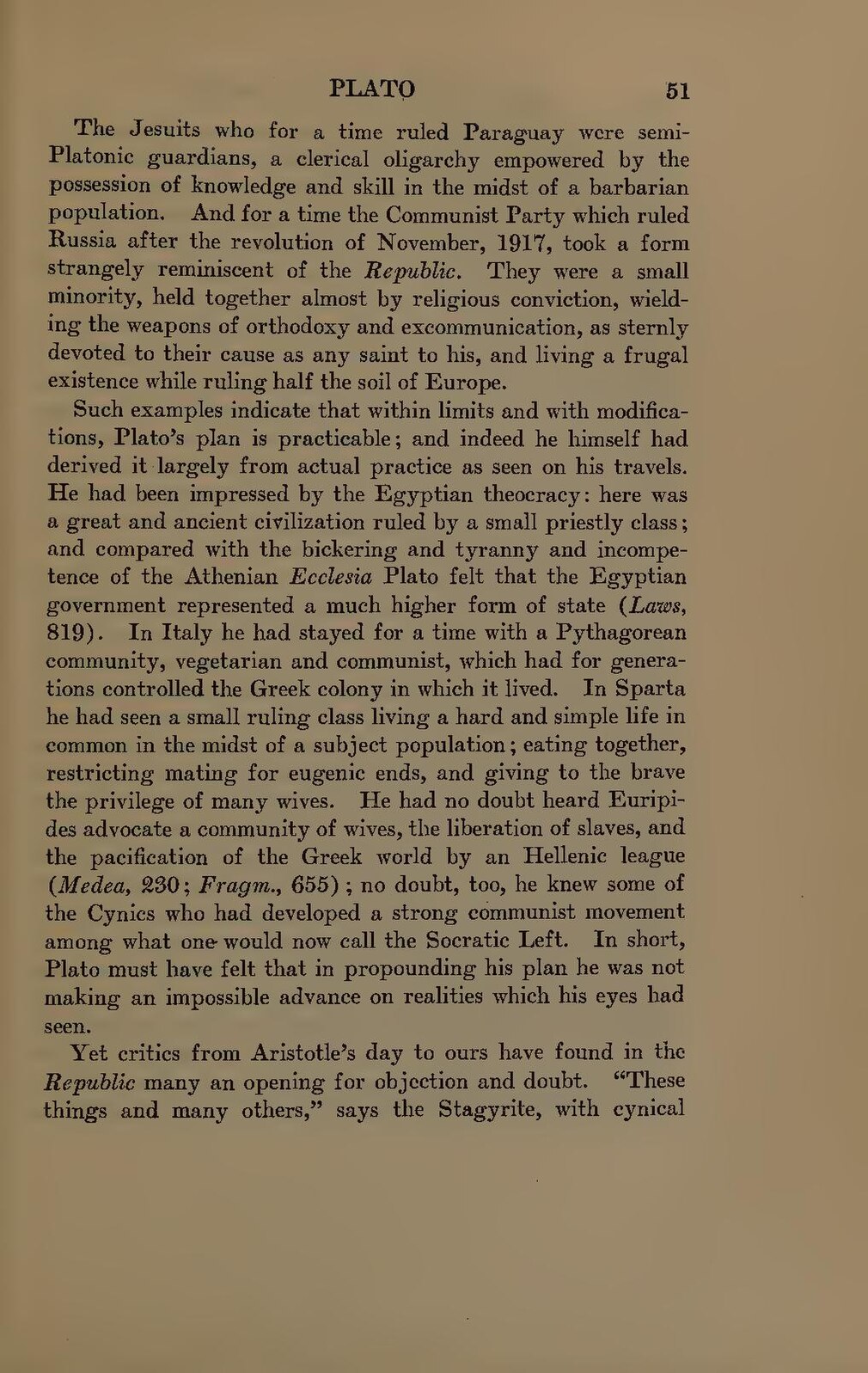The Jesuits who for a time ruled Paraguay were semi- Platonic guardians, a clerical oligarchy empowered by the possession of knowledge and skill in the midst of a barbarian population. And for a time the Communist Party which ruled Russia after the revolution of November, 1917, took a form strangely reminiscent of the Republic. They were a small minority, held together almost by religious conviction, wield- ing the weapons of orthodoxy and excommunication, as sternly devoted to their cause as any saint to his, and living a frugal existence while ruling half the soil of Europe.
Such examples indicate that within limits and with modifica- tions, Plato's plan is practicable; and indeed he himself had derived it largely from actual practice as seen on his travels. He had been impressed by the Egyptian theocracy: here was a great and ancient civilization ruled by a small priestly class; and compared with the bickering and tyranny and incompe- tence of the Athenian Ecclesia Plato felt that the Egyptian government represented a much higher form of state (Laws, 819). In Italy he had stayed for a time with a Pythagorean community, vegetarian and communist, which had for genera- tions controlled the Greek colony in which it lived. In Sparta he had seen a small ruling class living a hard and simple life in common in the midst of a subject population; eating together, restricting mating for eugenic ends, and giving to the brave the privilege of many wives. He had no doubt heard Euripi- des advocate a community of wives, the liberation of slaves, and the pacification of the Greek world by an Hellenic league (Medea, 230; Fragm., 655); no doubt, too, he knew some of the Cynics who had developed a strong communist movement among what one would now call the Socratic Left. In short, Plato must have felt that in propounding his plan he was not making an impossible advance on realities which his eyes had seen.
Yet critics from Aristotle's day to ours have found in the Republic many an opening for objection and doubt. "These things and many others," says the Stagyrite, with cynical
